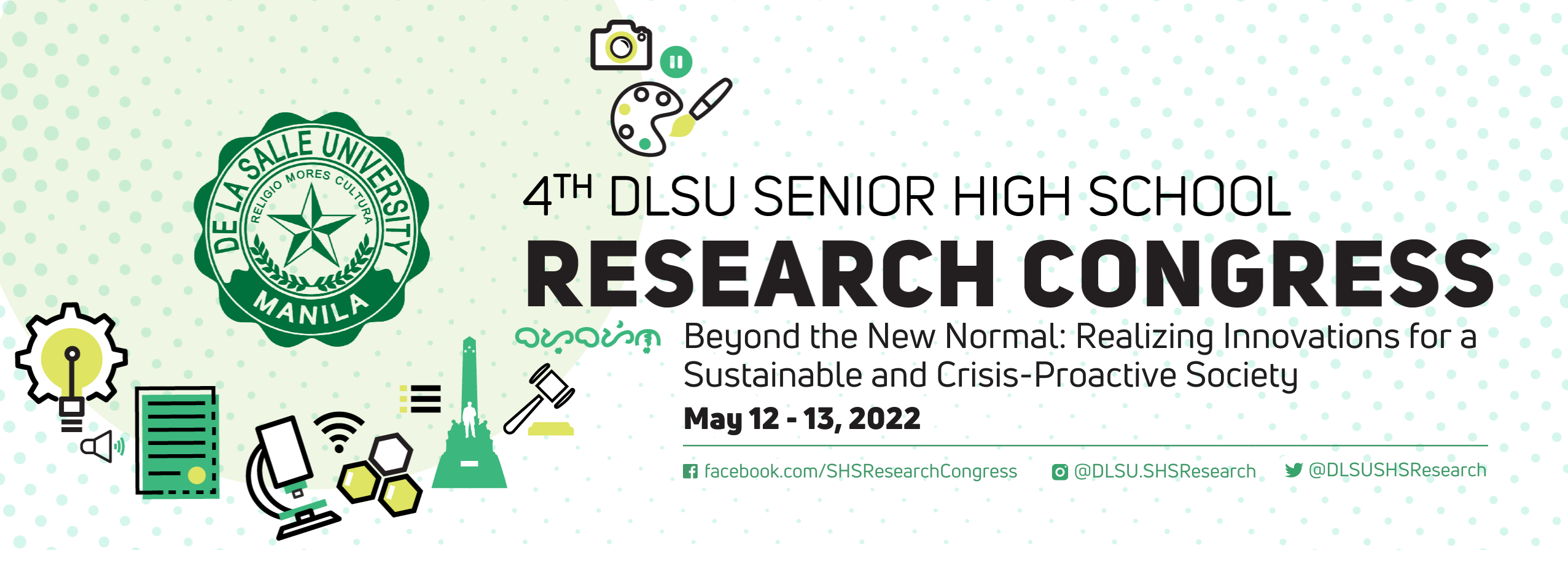Exploring Intention to Seek Formal Healthcare Amid COVID-19: Trends and Predictors among the Youth in Metro Manila
Document Types
Paper Presentation
Research Theme (for Paper Presentation and Poster Presentation submissions only)
Gender, Human Development, and the Individual (GHI)
Research Advisor (Last Name, First Name, Middle Initial)
Wilfred Luis L. Clamor
Start Date
13-5-2022 8:00 AM
End Date
13-5-2022 10:00 AM
Abstract/Executive Summary
The COVID-19 pandemic has seen a rise in lockdowns, fear, and anxiety. Analyzing the attitudes, subjective norms, and perceived behavioral controls in seeking formal healthcare is vital due to its manifestation in their intention. Determining the factors that affect this intention would see which factors encourage one’s willingness to seek formal healthcare, especially due to the various dynamics introduced by the pandemic. The study sought to determine how attitudes, subjective norms, and perceived behavioral controls influence intention in seeking formal healthcare of the youth in Metro Manila during the pandemic. A cross-sectional study involving a survey of the youth in Metro Manila was conducted. Pearson correlation and multiple linear regression were used to see the relationships of the variables, and how these affect each other. 160 respondents of the youth from Metro Manila were used to conduct the study. Subjective norms have the highest correlation and effect on one’s intention to seek formal healthcare during the pandemic. Perceived behavioral controls follow subjective norms in their degree of correlation and are a predictor for intention. Lastly, attitudes have a significantly weak correlation with intention and are not a significant predictor for intention. The youth give more bearing to the concern of others regarding their well-being, as well as the challenges perceived in seeking formal healthcare, in their intention to seek it. Giving more emphasis on lowering perceived barriers and alleviating concerns in seeking health during the pandemic would help encourage the youth’s intention.
Keywords
Theory of Planned Behavior; seeking formal healthcare; intention; COVID-19; youth; Metro Manila
Exploring Intention to Seek Formal Healthcare Amid COVID-19: Trends and Predictors among the Youth in Metro Manila
The COVID-19 pandemic has seen a rise in lockdowns, fear, and anxiety. Analyzing the attitudes, subjective norms, and perceived behavioral controls in seeking formal healthcare is vital due to its manifestation in their intention. Determining the factors that affect this intention would see which factors encourage one’s willingness to seek formal healthcare, especially due to the various dynamics introduced by the pandemic. The study sought to determine how attitudes, subjective norms, and perceived behavioral controls influence intention in seeking formal healthcare of the youth in Metro Manila during the pandemic. A cross-sectional study involving a survey of the youth in Metro Manila was conducted. Pearson correlation and multiple linear regression were used to see the relationships of the variables, and how these affect each other. 160 respondents of the youth from Metro Manila were used to conduct the study. Subjective norms have the highest correlation and effect on one’s intention to seek formal healthcare during the pandemic. Perceived behavioral controls follow subjective norms in their degree of correlation and are a predictor for intention. Lastly, attitudes have a significantly weak correlation with intention and are not a significant predictor for intention. The youth give more bearing to the concern of others regarding their well-being, as well as the challenges perceived in seeking formal healthcare, in their intention to seek it. Giving more emphasis on lowering perceived barriers and alleviating concerns in seeking health during the pandemic would help encourage the youth’s intention.


